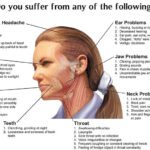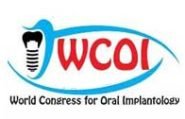In case you are one of those people who experience the side effects of constant sleep problem or one of those who suffer from intermittent sleeping issues, you know personally how the issue can affect your lifestyle. Sleeping issue can intervene with your work, your capacity to drive and your involvement in social activities.
Are you aware that some of the patients that deal with sleep problems are also experiencing a difficulty directly linked to the problem in their TMJ? It joins the lower jaw to the skull. More accurately, it is the place where the jaw gets attached to the skull. This is the joint which enables you to bite, yawn and swallow. Though, when it is not working appropriately it may be the actual cause of several issues.
The problem in this vital joint can lead to discomfort and pain in different parts of the body and these TMJ side effects — including teeth grinding, sleep apnea, tension, headaches, and migraines — can affect your capacity to get a decent amount of sleep at night.
Of late, dental and sleep analysts have discovered that TMJ disorder can add to sleep issues, including rest apnea. Whereas the study is still quite new, it appears that Obstructive Sleep Apnea (OSA) is certainly associated with chronic pain issue, including TMJ issue.
A typical side effect of OSA is a migraine or a headache. It is quite likely that these migraines or headaches are because of a jaw issue. The muscles of the temple and forehead work as an inseparable unit with the muscles of the jaw. In the event that a patient is grinding or clenching their teeth during the night—as is common in individuals with a jaw issue—this could cause headaches.
When breathing stops during sleep, the brain responds to the circumstance by creating a surge of adrenalin which thusly increases the heartbeat. Then the muscles in the chest work to continue airflow and the individual gasps for a breath and fall back to sleep. This situation then recurs several times throughout that night while the individual does not realize what is happening. That is why they never truly “wake up” however just experience a short interruption in sleep. This interruption decimates the normal sleep cycle course which is fundamentally imperative to wellbeing and brain functioning.
If the teeth are not aligned properly, the tongue can hinder the air route while sleeping. This issue with the jaw arrangement or malocclusion can make a man wake up every now and again for the whole duration of the night.
Untreated sleep apnea leads to snoring and can cause a lot more severe health problems, for example, hypertension and heart disease. Also, individuals with sleep apnea don’t get the rest they require because, as a preventive response, their brain prevents them from going into a deep sleep.
If you’ve been dealing with sleep issues, contact a dentist today, they can help you get relief and return to normal life.









